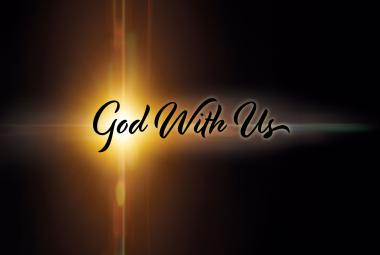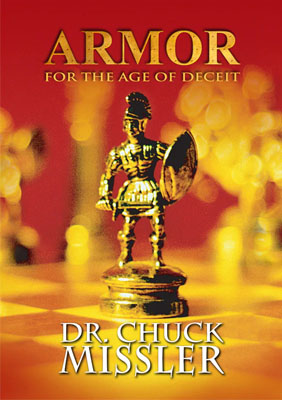What is our most important stewardship? As we enter the New Year, most of us will undertake a review of our plans and priorities: we will review our finances and other challenges with a fresh and unencumbered perspective. But how should we "rank order" the competing demands on our time and resources?
While many of us tend to focus on economic or financial aspects of our "stewardship," most of us should be spiritually sensitive enough to recognize that there are other priorities that should supersede economic or material things: family, etc. But what priority should be the paramount consideration among the competing demands on our time and resources? What aspect of our lives will prove to be the primary determinant of our eternal destiny?
Many demands will continue to consume our attention during the forthcoming year: family, careers, and the economic pragmatics that determine our personal prerogatives, etc. The "urgent" will tend to preempt the important.
But our most critical stewardship is our heart. That is what God is most concerned with, and it is this stewardship which will determine our response to all of the other issues we face-moment-by-moment, day-by-day, throughout the coming year, and, in fact, which will determine our eternal destiny. While our salvation is based entirely on what the Lord has done, our ultimate rewards will derive from our responses to the opportunities He provides to us.
Our decisions will derive from our perspectives, and these, in turn, derive from what is commonly called our "world view": our global perspective of the world we find ourselves in-our origin, our purpose, and our assumed destiny. There are, however, only two basic world views:
- We are simply the result of a series of cosmic accidents; or
- We are the result of a purposeful design with a destiny that will be determined by our responses, and their consistency with, the aims of the Designer.
There are no other alternatives. All of our attitudes and perspectives derive, consciously or presumptuously, from our world view. If we believe that we are, as our government schools continue to inculcate our children, simply the result of randomness, it shouldn't surprise us that many lack a sense of destiny or moral responsibility. If, however, we recognize a design in the universe - and in ourselves - we not only acknowledge a responsibility, but also yearn to know as much as possible about the Designer and His intentions.
It is interesting that in the study of theology we tend to begin with hermeneutics, the theories of interpretation, presuming that there is a value in "the Word of God." However, that is, in a fundamental sense, a second step.
A more foundational issue is, how do we "know" anything? This involves epistemology: the study of knowledge - its scope and limits. It deals with how we learn, or "know," anything.
Unfortunately, the study of epistemology (usually related, and thus limited, to the field of philosophy) is too often simply a philosophical self-serving massaging of definitions with little attainment of practical insights, tools, or operational results.
Furthermore, we are commanded, throughout the Scriptures, to "be not deceived."1 That is an imperative: a command to be performed. But how does one do that? How do we insure that we are not deceived? What are the methods and tools that we can apply to this critical threat to our very lives and our ultimate destiny?
Deception leads to the path to oblivion, and there are painful - in fact, terrifying - signposts along that path. It is critical to recognize these signposts, and to have a perspective of the "spiritual topography" that lies ahead.
The Path to Oblivion
Paul warned his protégé, Timothy, that times would become increasingly hazardous:
This know also, that in the last days perilous times shall come. For men shall be lovers of their own selves, covetous, boasters, proud, blasphemers, disobedient to parents, unthankful, unholy, Without natural affection, trucebreakers, false accusers, incontinent, fierce, despisers of those that are good, Traitors, heady, high-minded, lovers of pleasures more than lovers of God; Having a form of godliness, but denying the power thereof: from such turn away.
2 Timothy 3:1-5
And thus it becomes increasingly obvious - and necessary - to be aware of the signposts on the path to oblivion...
Secularism
The first step is to introduce doubt, followed by a denial, of God. This was Satan's strategy in the Garden of Eden and continues to be a primary front in his campaigns today. "Yea, hath God said?" Then, direct denial.
It is disturbing to see the increasingly arrogant attacks on our national values and heritage by those who seek to remove any mention of God from our history books and public ceremonies.
The next step is astonishing to observe in any "enlightened" culture: the denial of the existence of truth itself - value relativism. "You have your truth; I have mine." They are all "equally valid."
This is the futile bankruptcy of "multiculturalism."
The fear of the Lord is the beginning of knowledge
Proverbs 1:7
As Alan Bloom pointed out, to deny the existence of truth is to deny any value in attempting to learn the lessons of history.2 If there is no absolute truth, any previous attempts to discover it are vain. This then characterizes the intellectual bankruptcy of the modern universities.
Woe unto them that call evil good, and good evil; that put darkness for light, and light for darkness; that put bitter for sweet and sweet for bitter! Woe unto them that are wise in their own eyes and prudent in their own sight.
Isaiah 5:20-21
These resulting vacuums then lead, predictably, to the next step...
Materialism
If there are no absolute values, then, not surprisingly, we become self-absorbed. The "I" becomes the focus of our lives. We seek to find happiness in acquiring more "stuff." He who has the most toys wins. Furthermore, velocity makes any road seem right.
It doesn't take much philosophical insight to recognize the obsessive focus of our modern culture. The advances in technology have intensified our lust for "things" rather than liberating us from the tyranny of self-gratification.
Madison Avenue is the priesthood that rules our aspirations. Nowhere is this more evident than in the Christmas season: embellishing our lifestyles with new glitter eclipses any focus on the miracle of the Incarnation.
It is provocative to recognize that we become like the gods we worship.3 Is the material world harsh and unforgiving? If we worship the material world, we, too, become harsh and unforgiving.
Is the world of style constantly changing? If we worship the world of style, we, too, will be focused on form rather than substance, and be tossed to and fro as pawns in the marketplace, and exhausted from instability.
Is the intellectual world indecisive and focused more on method than substance? Then we, too, may lack resolve and lose the name of action.
As we ultimately admit the bankruptcy of materialism and its inability to provide any real happiness, the next step may not seem instinctively obvious, but proves to be predictable...
Mysticism
The discovery that materialism is equivalent to spiritual bankruptcy then causes one to leave the natural material world to explore alternative "direct" avenues in the supernatural to find significance and happiness. Is anyone out there? These avenues then lead to the occult, mysticism, and other speculations and superstitions.
It really shouldn't surprise us to see Hollywood celebrities, having no shortage of material resources, reject traditional avenues in their quest for meaning, and then plunge into the most bizarre fantasies for self-fulfillment.
Modern mysticism takes many forms: Christian Gnosticism, Jewish Kabbalah, Babylonian "New Age," et al. Isn't it astonishing to observe ostensible intellectuals, who usually would extol empirical verification, after rejecting established proven values take up the most unsupportable speculations and fanciful conjectures? Critical of well-established records and documents, they flee to take refuge in the discredited failures of the past.
The Darkness of the Times
The high priests of materialism - the media and the pandering agencies on Madison Avenue - continue to promote images rather than reality, not only promoting material goods but also desensitizing discernments, resulting in the death of the soul, not only of individuals but the nation as a whole.
The impending result is a lost generation - a Biblically illiterate people without God. The emptiness of the times will certainly lead to the Ultimate Deception. This spiritual vacuum would seem to be setting the stage for the rise of a pair of emergent heroes: the world leadership duo we collectively call the Antichrist.
This will be the first in a series of articles on epistemology: How and what we can know. We will deal with the scope and limits of knowledge, tools and methods to avoid being deceived, and the exploration of alternative mysticisms prevalent in contemporary society: the Jewish Kabbalah, and other Gnosticisms.
But so as to not leave you dangling in despair, let's peek at a glimpse of the final chapter:
Hope for the Future
Let not your heart be troubled: ye believe in God, believe also in me.
John 14:1
Let's not lose sight of our fundamental anchors in this sea of distress:
- God still reigns;
- The Church is still precious in His sight;
- Its mission is still clear;
- Our focus is still Heaven; we are but pilgrims, not "earth-dwellers"; and
- Victory is still certain. Indeed. Maranatha!
Notes:
- Deuteronomy 11:16; Matthew 24:4; Luke 21:8; 1 Corinthians 6:9; 15:33; Galatians 6:7, et al.
- Alan Bloom, The Closing of the American Mind, Simon and Schuster, New York, 1987.
- Psalm 135:18.





